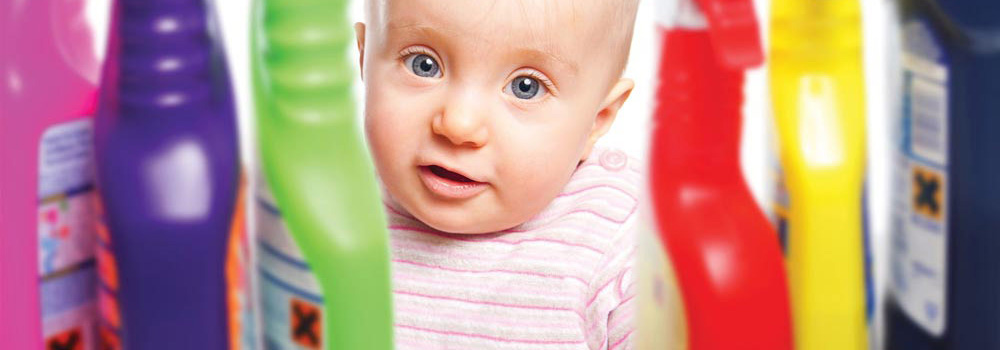For babies the biggest danger is rolling off the edge of a bed, or changing surface. For toddlers it is more about falling from furniture or down stairs.
PREVENTION:
-
Make sure your baby cannot roll off any surfaces, put pillows around them.
-
Do not put a bouncing cradle or car seat on a surface where they could wriggle off.
-
Use stairgates once your child is mobile. Make sure balconies are locked and fit restrictors and safety locks to windows.
WHAT TO DO:
If your child has a serious fall call 999.
Babies and toddlers can easily swallow, inhale or choke on small items like balloons, peanuts, buttons, plastic toy pieces, strings or cords.
PREVENTION:
-
Check on the floor and under furniture for small items.
-
Check that toys are age appropriate and in good condition.
-
Find out more about CPR (a first aid technique that is a combination of rescue breaths and chest compressions. Sometimes called the kiss of life).
WHAT TO DO:
If your child is choking act immediately and calmly. Make sure you do not push the object further down the throat. Encourage your child to cough. Use back blows, if they become unconscious call for help (do not leave your child alone) and start CPR.
www.redcrossfirstaidtraining.co.uk
One of the signs of a severe head injury is being unusually sleepy, this does not mean you cannot let your child sleep.
You need to get medical attention if:
-
They are vomiting persistently (more than three times).
-
They are complaining it hurts.
-
They are not responding at all.
-
Pain is not relieved by paracetamol or ibuprofen.
If they are tired from what’s happened, or from crying, then it is fine to let them sleep. If you are worried in any way about their drowsiness, then you should wake your child an hour after they go to sleep.
WHAT TO DO:
Check that they are okay, and that they are responding normally throughout the night.
Glass causes serious cuts with many children ending up in A&E.
PREVENTION:
Do not leave drinking glasses on the floor. Make sure glass bottles are kept up high.
WHAT TO DO:
-
If the cut is not serious bathe the area, make sure there is no glass left and cover with a clean non-fluffy cloth.
-
If the cut is serious, is bleeding a lot or has a piece of glass under the skin (maybe they trod on some glass) go to A&E.
Many children drown, often in very shallow water. It happens in the bath, in garden ponds, paddling pools and water butts.
PREVENTION:
WHAT TO DO:
Poisoning from medicines, household products and cosmetics are common.
PREVENTION:
Lock all chemicals, medicines and cleaning products away.
WHAT TO DO:
Find out what your child has swallowed and take it with you when you go to A&E.
Window blind cords and chains can pose a risk for babies and children who could injure or even strangle themselves on the hanging looped cords.
PREVENTION:
Install blinds that do not have a cord, particularly in a child's bedroom.
-
Pull cords on curtains and blinds should be kept short and kept out of reach.
-
Tie up the cords or use one of the many cleats, cord tidies, clips or ties that are available.
-
Do not place a child's cot, bed, playpen or highchair near a window.
-
Do not hang toys or objects on the cot or bed that could be a hazard.
-
Do not hang drawstring bags where a small child could get their head through the loop of the drawstring.
-
Find out more about CPR. www.redcrossfirstaidtraining.co.uk
WHAT TO DO:
Untangle child, call 999 and start CPR.

